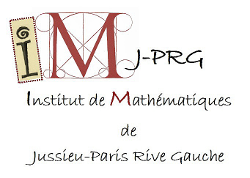| Résume | It is classical that the values\begin{gather*}\zeta(0)=-{1 \over 2},~\zeta(-1)=-{1 \over12},~\zeta(-2)=0,~\zeta(-3)={1 \over120},\\\zeta(-4)=0,\ldots,~\zeta(-11)={691 \over 32760},\ldots\end{gather*} atnon-positive integers are all rational. By contrast the values$$\zeta(2)={\pi^2 \over 6},~\zeta(4)={\pi^4 \over90},\ldots,~\zeta(12)={691\pi^{12} \over 638512875},\ldots$$are all irrational thanks to the transcendence of $\pi$. Ap\'ery provedin 1978 that $\zeta(3)$ is irrational, but we still do not know that$\zeta(5)$ is irrational. However Ball and Rivoal proved in 2001 thatthe number of irrationals among$\zeta(3),\zeta(5),\zeta(7),\ldots,\zeta(2n+1)$ is at least $c\log n$for some $c>0$ independent of $n$.\medskipEven less is known about $\zeta(x)$ at rational $x$, say with $2 < x <3$. We sketch a proof that the number of these $x$ with denominator atmost $n$, such that $\zeta(x)$ is rational also with denominator atmost $n$, is at most $C({\log n \over \log \log n})^2$ for some $C$also independent of $n \geq 3$. |

